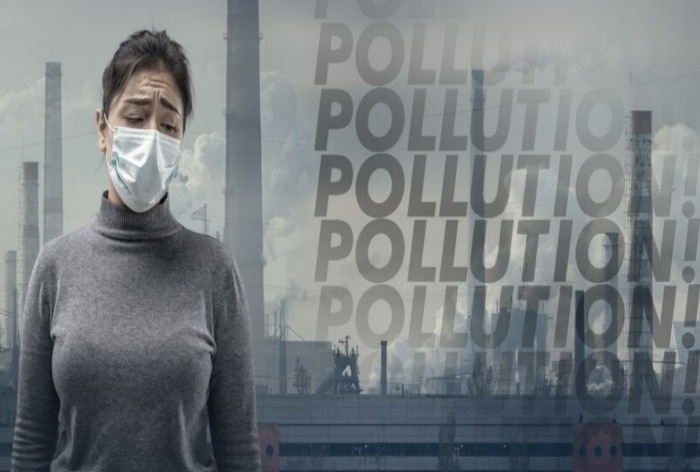Air pollution has been rising each passing day and along with respiratory problems, the toxic matter also can badly damage the skin. Here is how one can protect their skin from air pollution.

Delhi Air Pollution: The toxic air that we breathe in every day is not just affecting our lungs, asthmatic people, or causing throat infections. It also can severely damage the skin. Particulate matter (PM) is one of the major air pollutants and a major health concern. PM penetrates the epidermis through hair follicles in normal, intact skin and causes cutaneous inflammation. Furthermore, it has been reported that polycyclic aromatic hydrocarbons (PAHs), major components of PM2.5, easily penetrate the skin in animal models because of their lipophilic nature
The epidermis, the outermost part of the skin, provides a physical and functional barrier to prevent invasions of allergens, pathogens, and air pollutants such as PM into the human body Recently, it has been suggested that a disrupted skin barrier promotes epicutaneous sensitisation Epithelial barrier dysfunction induces type 2 immune responses and is considered an initial step in developing atopic dermatitis (AD) and the atopic march.
HOW AIR POLLUTION DAMAGE SKIN?
Air pollution is being shown to play an increasing causation role in our most common skin diseases. Acne, hyperpigmentation, atopic dermatitis, and psoriasis have been shown to be influenced by air pollution. It is important for pollution to be added as a risk factor for these skin disorders, and thus we must discuss mitigating its negative affects with patients.
- Oxidative stress: Air pollutants can generate free radicals, which are unstable molecules that can damage skin cells. This can lead to premature aging, wrinkles, and fine lines.
- Inflammation: Air pollutants can also trigger inflammation in the skin. This can lead to redness, irritation, and other skin problems, such as eczema and psoriasis.
- Skin barrier damage: Air pollutants can damage the skin’s barrier function, which makes it more difficult for the skin to protect itself from moisture loss and harmful substances. This can lead to dryness, dehydration, and sensitivity.
- Increased risk of skin cancer: Long-term exposure to air pollution has been linked to an increased risk of skin cancer, especially melanoma.
WAYS TO PREVENT POLLUTION DAMAGE ON SKIN
- Limit your exposure to air pollution: This means avoiding busy roads, factories, and other areas with high levels of air pollution. You can also check the air quality forecast in your area and avoid outdoor activities on days when the air quality is poor.
- Protect your skin: When you are outdoors, wear sunscreen, sunglasses, and a hat to protect your skin from the sun and other environmental pollutants.
- Cleanse your skin regularly: Use a gentle cleanser to remove dirt, oil, and pollutants from your skin.
- Moisturise your skin: Apply a moisturizer to your skin regularly to help keep it hydrated and protected.
- Use antioxidants: Antioxidants can help to protect your skin from free radical damage. You can find antioxidants in many skincare products and in foods such as fruits, vegetables, and whole grains.
It is important to follow these skincare tips to reduce the risk of pollution damage on skin.
- Cleansing
- Exfoliation
- Moisturising
- Sunscreen application
- Use face mask
- Diet rich in antioxidants and vitamins
